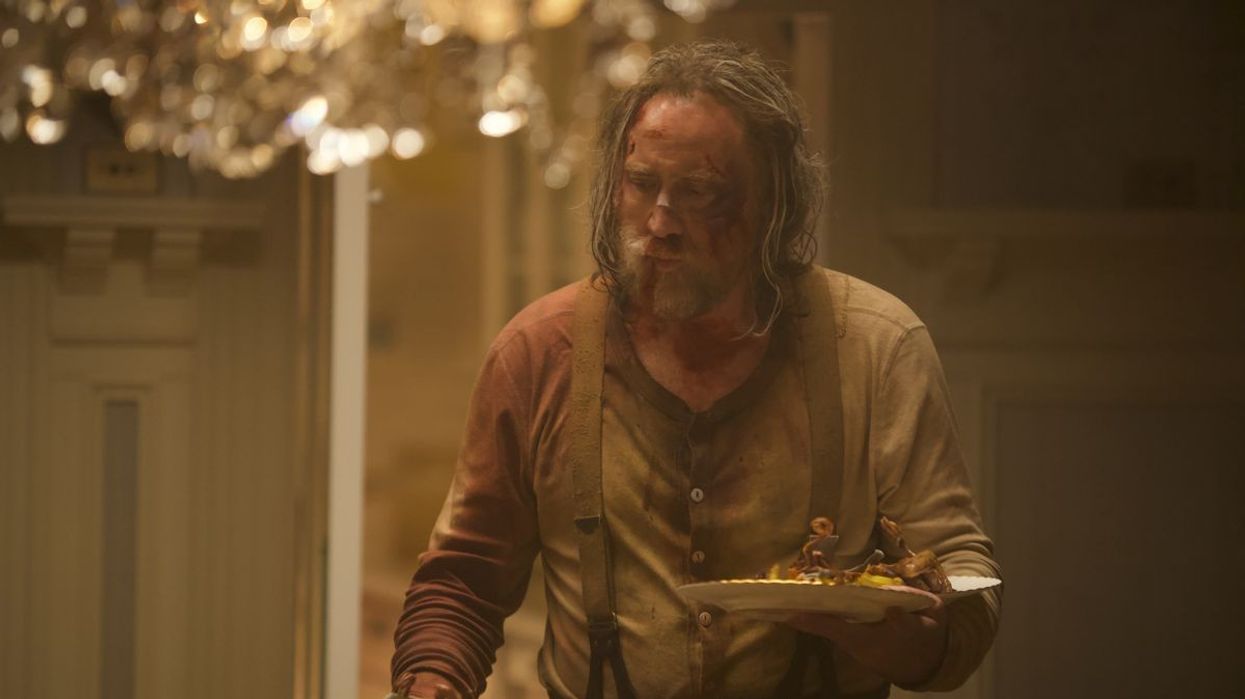The Ways 'Pig' Teaches Us That Empathy Is the Best Revenge
Revenge is a dish best served warm.

In the everyday world, we seek revenge through small, almost unnoticeable actions that cause inconvenience to another person’s life. Revenge is a strange way to cope with feeling wronged. Sometimes, we wish revenge could be bigger, break the rules without consequence, showing the world our fury just like characters do in revenge movies like John Wickor Oldboy.
Then, a revenge movie comes around that asks you to look inward. Why should you continue the cycle of violence? Why not seek forgiveness?
Pig follows Rob (Nicolas Cage), a retired chef, as he looks for his stolen truffle pig, his only form of companionship after the death of his wife. The movie is set up to replicate John Wick, but instead of violence to cope with loss, Rob offers empathy while searching for his peace.
So why does this work as a great revenge story? Let’s break down how empathy in a story about revenge subverts the audiences’ expectations, offering a dish best served warm.
Pig is full of broken people. Rob is torn apart by grief and loneliness. Amir (Alex Wolff) acts cocky and is desperate to make worthy achievements due to the emotional abuse of his father. Darius (Adam Arkin) is consumed by anger and grief as his wife remains in a coma after attempting to end her life due to their unhappy marriage.
Everyone is in a state of disrepair, a feeling that many of us can recognize in our own lives. As the story unfolds, Robin can slowly break down many of Amir’s barriers he put in place to avoid any emotional connection to others. Rob extends his nurturing hand to Amir through their shared form of communication—food.
Food can connect people by providing physical comfort and experiencing a shared moment or memory. Films and TV do a similar thing by connecting an audience to a familiar feeling or memory while creating a new shared moment with the audience. An example of a shared movie moment for me was the end of Marley & Me. As the lights came up, everyone looked at each other’s tear-stained faces and asked, “Did you cry? I cried.”
Films that allow a shared moment of empathy allow the characters and audience to be vulnerable. That state of vulnerability opens you to the idea of pushing your ego and anger to the side for a moment. In Pig, food exposes a person’s pains, giving them the freedom to be vulnerable to find peace.

One of the most effective moments of the film comes when Rob sits down with Derek (David Knell), a former prep cook at Rob’s restaurant. Rob empathetically and pointedly criticizes Derek for opening a contemporary restaurant rather than a pub he always wanted to run. The camera tightens in on Derek’s face as he remembers his dream and the reality of his current circumstances. His facade is cracked, and the audience recognizes that Derek gave up his dream to be someone worth noticing by the public.
Moments like these are constant in Pig. Rob doesn’t want to hurt anyone to find his pig. Instead, he wants to offer empathy to avoid anything like this happening again.
The ending of the film is devastating as Rob reveals to Darius, the man who stole the pig, that Rob doesn’t need the pig to hunt for truffles, but wants her back because he loves her. Rob offers to make Darius the meal that he and his wife ate on their one happy night of marriage, and Darius breaks down after the first bite as he is overwhelmed by his regret.

Rob watches in silence, asking again where his pig is. The grief and desperation for love and empathy are palpable as the warmth of the lighting invites you in for the crying session.
We don’t normally expect moments of empathy and sympathy from revenge movies. Instead, revenge films are our escape fantasies. When we are asked to reflect on why we seek revenge, a layer of the self is peeled back to show our deepest wounds just as the film refuses to show you the glitz and glamor of the fine-dining world of Portland.
The film, instead, shows you the kitchen, butcher shops, and underground fight club of the fine-dining world to highlight the anger and frustrations that chefs experience as they try to find success with their passion.
Sometimes, you won’t find that success, but is it worth ending your life or giving up your dream? Following your heart is a hard path to go down, but it is fulfilling. You won’t find yourself filled with regrets or asking “What if?” each time you thought about your circumstances.
Pig punches you in the gut, asking you to stop seeking to validate yourself by putting down others. It asks you to do what you want to do in this short life.

Pig isn’t about the pig, but the characters and their emotional wounds. It’s a deeply personal and quiet film that sees Nick Cage as a martyr blessing us with a moment of care. As we listen with tear-filled eyes, we nod in the darkened room and promise ourselves that we will find peace and happiness soon.
Have you watched Pig? Let us know your thoughts on the film in the comments below!

 Richard Gere and Uma Thurman in 'Oh, Canada' via Kino Lorber
Richard Gere and Uma Thurman in 'Oh, Canada' via Kino Lorber  Uma Thurman in 'Oh, Canada'via Kino Lorber
Uma Thurman in 'Oh, Canada'via Kino Lorber 









